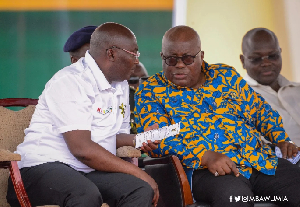All around the world the ongoing trend is that national governments are lifting their restrictions on the movement of people – generally known as lockdowns – in response to the demands of the general populace in most places who are being pressured by economic considerations or at least are simply fed up with having to stay at home.
National governments who are looking with dismay at the economic data being generated, which invariably indicate sharp economic growth slow downs and equally sharp increases in unemployment are using those demands as reason to lift the lockdowns and get their respective national economies working again.
Meanwhile, the medical community, backed largely by the media, who are about the only ones listening to the experts in this regard right now, continue to warn that the lifting of restrictions has the potential to increase the rate of infection just at a time when it appears that it may be close to peaking in many countries around the world. But very few people are listening to those warnings right now.
Here in Ghana, the country has so far got off quite well. After three months of having to deal with the arrival of coronavirus, confirmed cases are still well below 7,000 and deaths are still below 40.
This has given Ghanaians a sense of complacency which could be dangerous. The lifting of a lockdown on COVID 19’s epi-centres after just three weeks has given many Ghanaians the erroneous belief that the worst is behind us.
This is curious to say the least; when the lock down was lifted Ghana had just a few hundred confirmed cases – as at now there are well over 6,000 and the number is rising far more quickly than when the lock down was in place.
The fact that even relatively affluent societies that can afford far bigger economic safety nets for its people than Ghana can, are demanding a relaxation of restrictions on movements and both economic and social activity shows that people, by nature, value their socio-economic freedom more than their very lives.
However we would like to warn Ghana’s government, that while accepting the verdict of human society worldwide, with regards to socio-economic freedom, it must consider this country’s peculiar circumstances.
Most especially it must consider that our medical response capabilities are nowhere near those of the developed economies. What has kept Ghana from a medical disaster so far has been government’s prudent policies in containing the virus, the prudence of millions of Ghanaians – for instance in using masks – and sheer blind luck (or as the religiously faithful would put it, the mercy of God).
But we must not take things for granted. Ghana does not rank as high as the western hemisphere countries with regards to individual freedoms, which is not a good thing in normal circumstances. In the current, most unusual circumstances, however, the long-standing tendency of Ghana’s authorities to be excessively authoritarian, can be put to good use, for the ultimate benefit of the general public.
In the current circumstances, we would willingly forgive government for being authoritarian in devising and enforcing policies and codes of conduct that curtail the spread of the virus; even to the extent of re-imposing a lockdown when other countries are ill-advisedly lifting theirs.
We believe that when the dust eventually settles, even critics of the government’s hard-nosed policies for curtailing the spread off the infection would turn around and say thank you.
Business News of Wednesday, 27 May 2020
Source: goldstreetbusiness.com

















